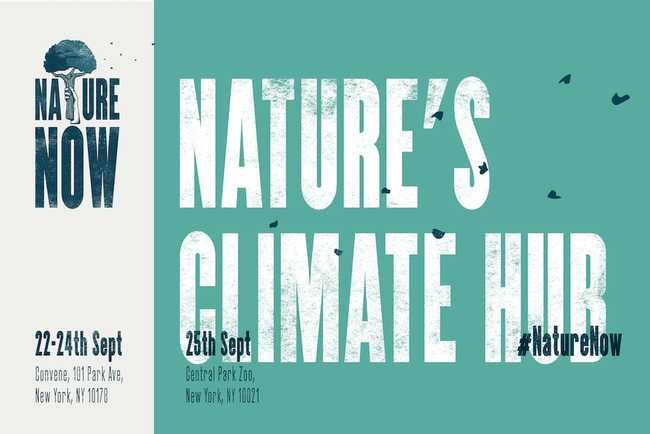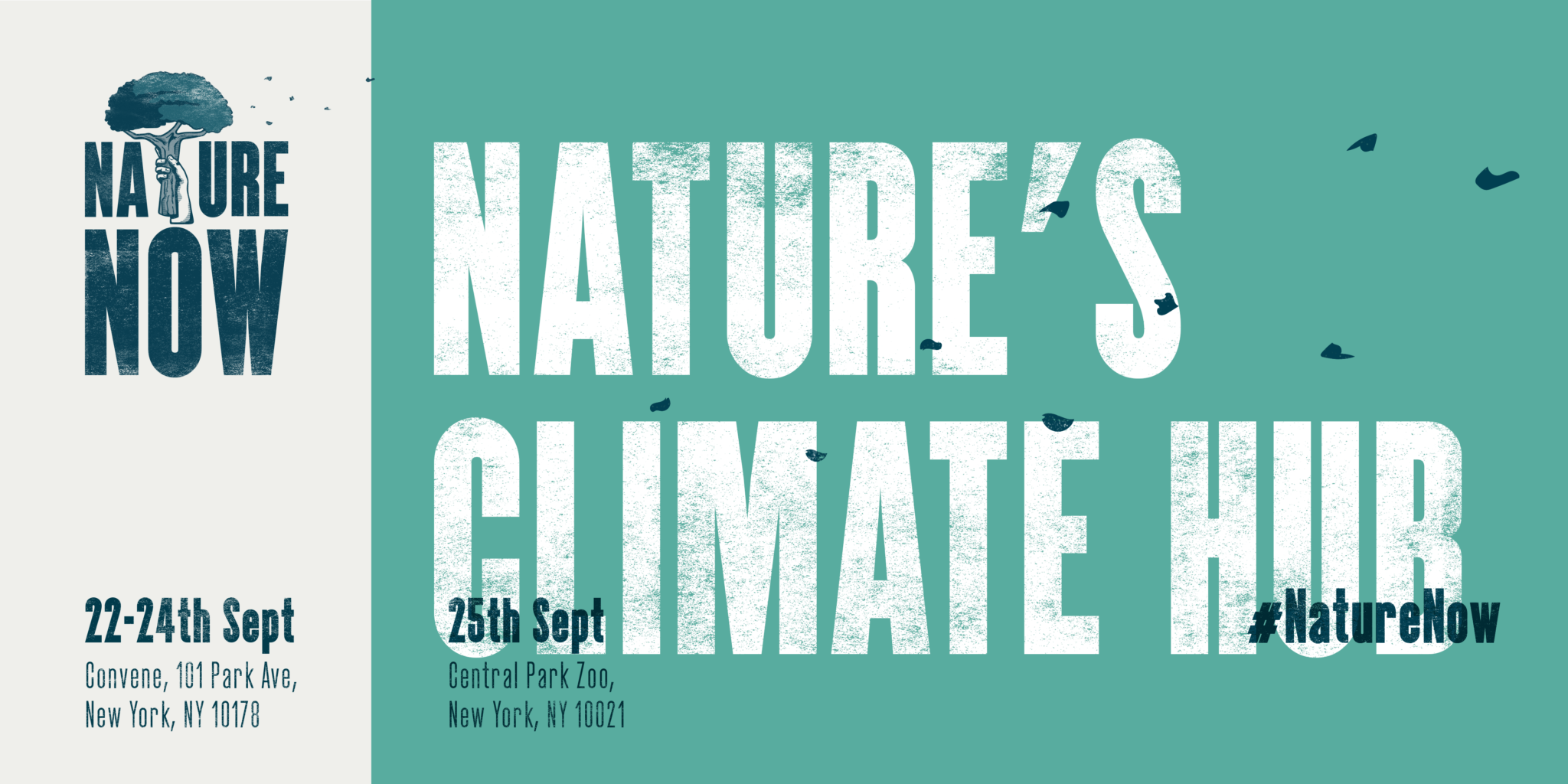
At what might be the most high-profile summit on climate change since the 2015 UN conference that led to the Paris Agreement, nature will play a central role as a lead theme and one of the key six ‘action’ areas at the UN Secretary-General summit, during Climate Week. To celebrate and endorse nature’s role as a climate solution and its intrinsic value providing a third of the climate solution by 2030, Nature4Climate will host four days of powerful programming at the Convene 101 Park Avenue and Central Park Zoo from September 22nd to 25th.
Read more
Related articles for further reading
— 6th August 2019

At what might be the most high-profile summit on climate change since the 2015 UN conference that led to the Paris Agreement, nature will play a central role as a lead theme and one of the key six ‘action’ areas in September in New York during Climate Week.
The summit will bring together governments, the private sector, civil society, local authorities and other international organizations to develop ambitious solutions in a total of six areas: a global transition to renewable energy; sustainable and resilient infrastructures and cities; sustainable agriculture and management of forests and the ocean; resilience and adaptation to climate impacts; and alignment of public and private finance with a net-zero economy.
UN Secretary-General António Guterres is calling on leaders to come to New York with concrete, realistic plans to enhance their nationally determined contributions by 2020, in line with reducing greenhouse gas emissions by 45 percent over the next decade, and to net zero emissions by 2050.
To celebrate and endorse nature’s role as a climate solution and its intrinsic value providing a third of the climate solution by 2030, Nature4Climate will host four days of powerful programming at the Convene 101 Park Avenue and Central Park Zoo from September 22nd to 25th.
“Without nature, our response to climate change is lacking. In addition to the rapid decarbonization of the energy, industrial and transport sectors, enacted through a just and inclusive transition, the emergency response must include a major investment in nature,”
“These solutions – which focus on removing emissions from the land sector and enhancing the ability of natural ecosystems to remove carbon from the atmosphere – are viable, cost-effective, and scalable – and can be used in every country on Earth,”
Lucy Almond, Head of Nature4Climate.
Nature’s Climate Hub is a collaborative venture with more than 130 submissions, from more than 50 organizations – and organized by a coalition of 20 partners. The Hub will be home to a series of lively ‘big idea’ talks showcasing the best of nature-based solutions; interactive sessions tackling the challenges we face – and opportunities to meet the experts; commitments from governments and companies and communities; sessions involving art, storytelling, film, and music. The full program will be available soon on the Climate Week website.
Program
- Forest and Restoration Hub on Sunday 22nd September will delve deeper into what is happening around the world on forests and restoration. There will be more than 30 different events covering commitments, innovations, and actions focused on in-tact and natural forests, avoided deforestation commodities, restoration, finance, indigenous peoples and local communities. Location: Convene, 101 Park Avenue.
- Food, Soils and Agriculture Hub on Monday 23rd September will showcase the best ideas, techniques, and processes for a world where we can feed our growing population while protecting and restoring the natural world on which those systems rely. There will be sessions on food systems, healthy soils, agricultural practices, peatland conservation, and the role of all stakeholders – from indigenous peoples to private sector companies. Location: Convene, 101 Park Avenue.
- Ocean, Freshwater and Marine Ecosystem Hub on Tuesday 24th September will bring together sessions on the critical role of ocean and freshwater ecosystems as both sink and salve, the role of blue carbon, finance, marine natural climate solutions, community, and corporate innovation as well as discussion on aquaculture and marine life at risk. Location: Convene, 101 Park Avenue.
- Nature-Based Solutions Nexus Hub on Wednesday 25th September will focus on how nature-based solutions can deliver for biodiversity and the Sustainable Development Goals as well as for the climate. Sessions will examine the cross-cutting nature of many nature-based solutions, and will culminate with a rally to celebrate all the announcements and actions from the UN Summit and Climate Week. Location: Central Park Zoo, WCS.
This has been made possible by the funding and support of UNDP, New York Declaration of Forests, Conservation International, WCS, TNC, and Youth4Nature.